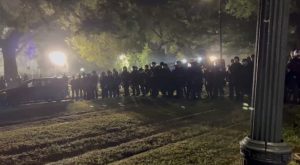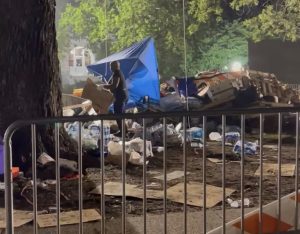A lack of an official honor code drew attention to a problem at Loyola that’s affecting many other American universities as well.
Following the trend of the lack of official honor codes at prestigious American universities, including Harvard University and Dartmouth University, an honor code committee made up of Loyola students and faculty members has proposed an honor code for the future academic year to address academic integrity issues.
Melanie McKay, vice provost for faculty affairs, said a draft of the academic honor code has been approved by SGA, yet has more steps to take for its full approval.
“It is pending approval in the Univeristy Senate and we expect to have it implemented by fall 2013,” McKay said in an email.
Teri Gallaway, University Senate executive committee member, said not having an honor code to address academic integrity issues is something the Loyola community is not experiencing alone.
“This is not an uncommon problem for universities,” Gallaway said.
Mara Steven, history pre-law senior and honor code committee student representative, said the purpose and mission of the honor code committee is to write a guide for students to be able to clearly define academic honesty.
“The committee is reviewing the definitions and policies regarding cheating, plagiarism, false citations, falsified data, falsification of academic records, unauthorized collaboration, misuse of electronic material and violation of academic property laws,” Gallaway said.
Gallaway said she feels students should be involved in the honor code development process.
“It is important that students serve a central role in upholding the university’s Academic Honor Code,” as stated in a recent proposal Gallaway referenced.
As a student involved in the honor code development, Steven said, “I feel that I have played an important role, alongside fellow students.” Steven said she feels the university community sees potential in an honor code.
“The Loyola community believes that we will all benefit from the implementation of a defined honor code as we continue to pursue the best possible education standards,” Steven said.
Though some students, like Steven, said they believe the honor code is a positive change for Loyola, Maya Schacker, political science junior, disagrees.
Schacker said she believes some students will always choose to cheat regardless of an honor code or other penalties and that an honor code will not end or change cheating at Loyola.
“Students who follow the rules do not need extra motivation or added deterrence to continue following the rules. And those that don’t will not be swayed by an honor code, which is really no more than an external moral compass that one can so easily choose to ignore,” Schacker said.
Schacker said she believes there are better alternatives to the proposed honor code, but that an honor code would promote ethical ideals.
“In the long run, the cheater is only hurting themselves and students who abide by the school’s rules should not be put in a difficult situation,” Schacker said. “Those that work hard will succeed in the end.”
Lucy Dieckhaus can be reached at [email protected]












